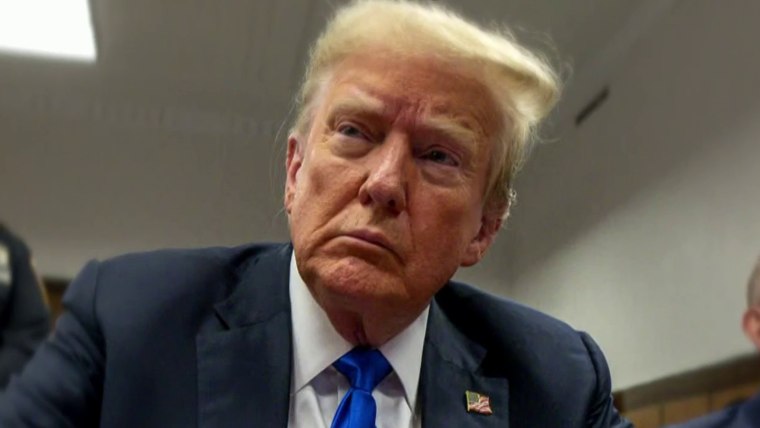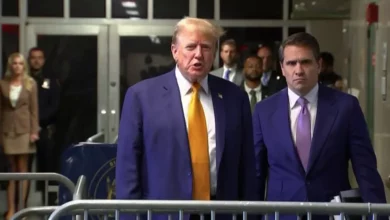Can Trump still run for president after his hush money conviction?
The former president was convicted on 34 felony counts of falsifying business records and will be sentenced on July 11.

In a historic moment that could have a major impact on his campaign for a second presidential term, a Manhattan jury on Thursday convicted former President Donald Trump on 34 felony counts of falsifying business documents related to a hush money payment made to adult film star Stormy Daniels.
Though the outcome of his campaign against President Joe Biden won’t be known until voters head to the polls in November, it’s clear that he can continue on his path as the GOP presidential nominee, despite his conviction.
The Constitution lays out a clear set of guidelines, or rules, for those seeking to be the next president. But the criteria, outlined in Article II, Section 1, are brief: A candidates must be a “natural born Citizen” (largely taken to mean born in the U.S.), be at least 35 years old and have lived in America for 14 years.
“There are no other qualifications other than those in the Constitution,” NBC News and MSNBC legal analyst Chuck Rosenberg, a former U.S. attorney, said following Thursday’s verdict.
“There’s just three” requirements, Rosenberg added.
No part of the Constitution says people who have been convicted of crimes can’t run for president.
The 14th Amendment does include an insurrection clause that prevents previous officeholders who “engaged in insurrection” from running for various offices. But a U.S. Supreme Court ruling this year found that Congress is responsible for setting rules about how the clause can be enforced against candidates for federal office.
Trump wasn’t convicted of any insurrection charges Thursday. And there doesn’t seem to be much political will in a narrowly divided Congress to bar him from serving as president.

At this point, Rosenberg said, the only way Trump could be barred from running for another term would be if Congress and the states passed a constitutional amendment or if Congress impeached and convicted him.
However, Trump won’t be the first convict- turned-presidential candidate.
In 1920, Eugene Debs was the official presidential nominee of the Socialist Party of America, and he campaigned from prison in Atlanta after he was found guilty of sedition.
But Debs wasn’t a serious contender to win the presidency — he won just 3% of the popular vote and no electoral votes.
Trump, on the other hand, could very well win the election this fall and set up an unprecedented situation. Depending on the sentence he receives in July (he faces up to four years in prison), he could be on the hook for a sentence during his presidency.
That would raise a whole slew of complications.
“Can the state of New York enforce [a sentence] against the sitting president?” Rosenberg asked. “It’s a really, really hard question.”




